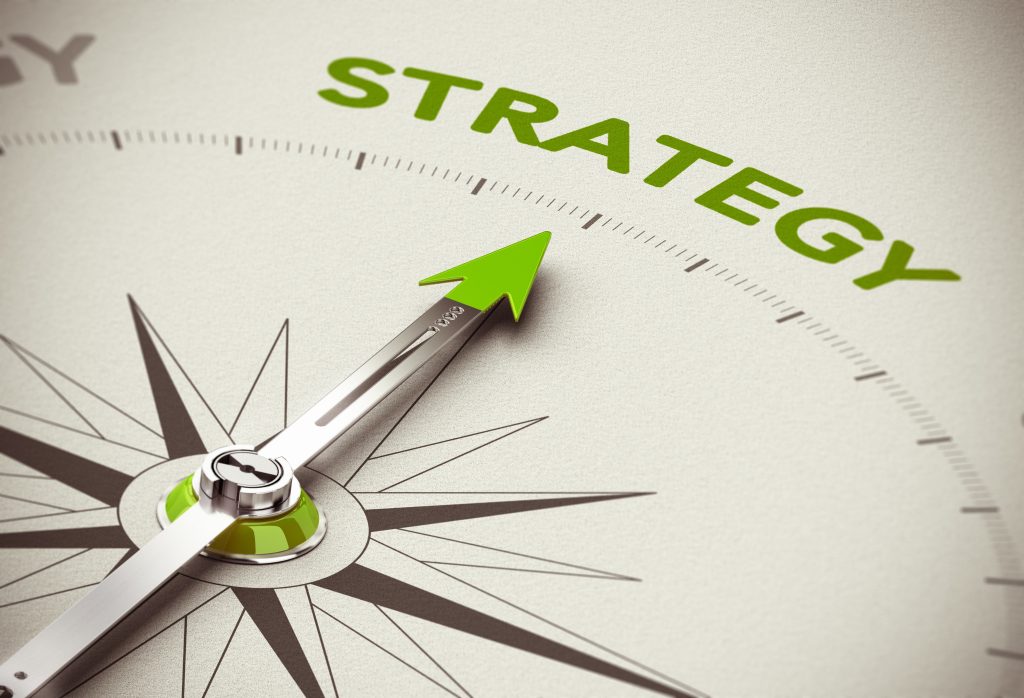General Business Strategy
Why do we need a formal marketing strategy?
This was the question posed to us by a new client just a couple of weeks ago, and it caused us to stop and think carefully.
You see, we’ve been doing this for over 20 years now, and we always start with a marketing strategy for an SME. We call it a Blueprint, and we’ve developed our own unique way of approaching it over the years. So much so, that it’s become ‘just what we do’, almost without thinking…
So, thank you dear client, sometimes it’s good to be challenged on the stuff we all take for granted.
“We’ve always done it that way.”
… whenever we hear that from a client it always prompts us to challenge entrenched assumptions. So we took our own medicine…
What the client actually asked, was “can I skip the strategy part and just get on with running marketing activities?”.
In articulating a response, we zeroed in on seven key advantages of a formal marketing strategy, and thought we’d share them with you now …
Seven key advantages of developing a marketing strategy.
1. The Power of Focus
The sole purpose of a marketing strategy is to help your business reach its main goals and objectives – it serves the broader business strategy. Whether that’s to reduce churn, break into a new market, grow your market share, increase conversions, get your business ready to sell in five years or even build an accountable marketing department to fill your operational capacity and support sales – whatever it is, the marketing strategy should be designed to help you get there.
Without this ‘top down’ approach, you’ll end up with a random collection of marketing ‘tactics’ that probably won’t be aligned with your other business activities and won’t move you towards your broader goals – the situation we find at 90% of businesses that reach out to us for help. Additionally, you’ll find that different members of your team think and speak about your business each in their own way, and that means they might not be pulling in the same direction and customers might be getting confused signals.
The strategy (and the brand articulation within it), therefore, provides direction and focus, and if the whole management team is involved in creating the marketing strategy (as it should be), then it also allows you to hold the marketing team to account on delivering it and focus on the agreed priorities.
Key advantages:
- Supports overarching business goals
- Provides a document of accountability
- Focus the team

2. Nailing your Advantage
A well-thought-out marketing strategy takes your competitors into consideration, and helps differentiate your business from all the rest. It carves out a competitive advantage that, when leveraged effectively, gives prospects a reason to choose you rather than them. We’re always surprised how many businesses out there haven’t done the work to nail this, perhaps because it’s harder than it sounds. But it’s most definitely a fundamental part of a marketing strategy.
Key advantages:
- Differentiates you from your competitors
- Gives prospects a reason to buy
Client example: Stanton Dahl
This well-established architecture firm was looking to refocus on its core strengths in order to grow quicker than was happening organically. Our marketing strategy ‘Blueprint’ process identified a lack of distinction between them, and most of their competitors. We got to work, shone a light on their special differences and developed a clear positioning for the business that differentiated them from the architects they often competed against and that captured the essence of the business. This was summed up in the line ‘Architecture in the Service of People’ and this created the platform for a brand refresh, a new website and more.
3.Effective Targeting
Whatever you’re doing in marketing, you need to know who your audience is so you can adjust your messaging accordingly.
Every business thinks they know who they sell to, but few really have insight into what’s actually going on for those people; their hopes, fears, needs, aspirations and challenges. The process of creating a formalised marketing strategy encourages deeper investigation, identifying the traits of your ideal client types, considering what will move them to act, and setting it all out on the page so it’s not lost or forgotten. This is likely to lead to insights you’d never have come across otherwise.
It also helps to transfer knowledge to others in the business, particularly sales and customer support.
The result? More effective messaging, more focused copy in websites and collateral, more qualified prospects and higher close rate, better customer satisfaction and retention. What’s not to like about that..?!
Key advantages:
- Greater knowledge of your ideal customers
- More effective targeting and messaging
- Transfer of insight & knowledge
Client example: GRC Solutions
A leading player in corporate compliance training found its clientele broadening from compliance lawyers to HR professionals, with a corresponding shift in characteristics, needs and wants. This was fully explored in our Blueprint process, and resulted in revising the brand to target the changing market and their different needs.
It’s now in the process of being rolled out, and yet internally, it’s already made a difference with employees reporting it better reflects what they do, and the clients they deal. A powerful reminder that marketing strategy can have a significant effect internally, as well as externally.

4. Intelligent Resourcing
Possibly one of the more important reasons for an SME to develop a marketing strategy, is so they can be smart about where to apply limited resources.
SMEs often compete against larger organisations with teams of marketers, big budgets and a steady pipeline of sales developed over years of operating. And while all that sounds wonderful, thank you very much, it can also lead to wastefulness, a lack of accountability, fuzzy focus and complacency.
Therein lies your advantage – SME’s need to be shaper to compete. A strategy, by definition, tightens resourcing focus; you decide carefully and mindfully where to deploy time, money and personnel to get the biggest bang for your buck.
When you get it right, you’ll frighten a few of the big cats in your industry, no doubt about it.
Key advantages:
- Smarter use of limited resources
- Exploit opportunities missed by big business
- Maximise return on marketing investment
Client example: Classic Safari Company
This bespoke luxury travel company approached us looking for a website that was better structured and easier to update than their old one. A strategic review revealed the existing site wasn’t, however, effectively targeting their high-end clientele. This resulted in a complete reimagining of the website, presenting the aspirational aspect of their product more effectively to the target market. Without the strategic review up-front, this project would have been a poor investment, and less than optimum use of limited resources and funds. It’s not the first time we’ve had to tell the client their instinct was right, but their brief was wrong. And not the first client who’s been delighted by the result.
5. Using Data to Increase Effectiveness
A marketing strategy forces you to set goals and track your progress towards them. Once your marketing is up and running, it really should incorporate an ongoing process of test, learn and improve.
Your plan should consider a data collection, analysis and feedback system so you can monitor what’s working, to what extent, and what can be done to improve on your efforts.
This enables you to be ruthless about cutting what doesn’t work and investing in what does, further focusing your marketing and cumulatively building effectiveness.
Without this kind of measurement you’ll have no idea if what you’re doing is making a difference to the bottom line. And if you don’t know that, then what’s the point?!
Key advantages:
- Tracking what works and what doesn’t
- Monitor progress towards agreed goals
- Continuously improve your marketing
6. More Nimble Market Adaptability
While your measurement and tracking of relevant metrics allows you to continuously improve your tactical marketing, the marketing strategy document also allows you to check in on the big-picture now and again, and determine if you’re still on track towards your overall business goals.
By reviewing market conditions, competitor developments and potentially changing customer preferences, you can reference back to the inputs for your initial strategy, and see if any adjustments are required, rather than re-inventing the wheel each time something changes.
This allows you to stay ahead of the curve, and adapt to market realities more effectively.
Key advantages:
- Stake in the ground for strategic decision making
- Allows you to compare and contrast market changes
- Reference point for adapting the plan to stay relevant
7. Consistency
We can all be distracted by the ‘shiny new thing’, an effective marketing is all about consistency; results build slowly over time through a steadily applied approach. Committing to a formal marketing strategy prevents you and your team from deviating, or bowing to the ever-present pressures of the urgent over the important.
Running a business always has its ups and downs, and we all have our doubts now and again, but if you’ve put enough thought into a marketing strategy then it gives you the confidence to know that, yes, you are heading in the right direction, and it helps you stay the course. It’s a big ‘tick in the box’ mentally that frees you to concentrate on the rest of your business.
Key advantages:
- Gives you confidence to weather the storm
- Ensures consistency and better results
- Allows you to get on with business

So there you go, we came up with seven solid reasons, and key advantages of developing a formal marketing strategy.
It was a great exercise that forced us to go beyond “well, it’s everything we ever leaned about what works in marketing”, even though that is definitely the case. Fortunately, our client was persuaded, and we’re getting stuck into the process right now.
Another benefit of this, was to reinforce our own confidence in what we’re doing. Knowing that despite the ups and downs of running a business, yes we are heading in the right direction, and we’re doing the same for our clients too.
Perhaps it’s best you hear what they think about it in their own words; here are a couple talking about it.
If you’d like to find out more, or get some help yourself then simply contact us here, and we’ll get started.




